
 MUSKOKA, Ontario and GOLDEN, BC – ThirdGen Timber Group, parent company of True North Log & Timber Homes and Legacy North Construction Management, has announced that it has acquired a majority stake in Canadian Timberframes, one of Canada’s most respected and established timber frame manufacturers. This transformational partnership brings together Canada’s leading log and timber manufacturers. …Mark Wrightman, Co-Owner of ThirdGen Timber Group, “Together, we’re building the most complete log and timber offering in North America — expanding our ability to deliver complex projects, innovate in sustainable design, and create new opportunities for our people and partners.” …Jeff Bowes, President of Canadian Timberframes, “By joining ThirdGen Timber Group, we can expand our reach and capabilities while continuing to deliver the exceptional projects we’re known for.”
MUSKOKA, Ontario and GOLDEN, BC – ThirdGen Timber Group, parent company of True North Log & Timber Homes and Legacy North Construction Management, has announced that it has acquired a majority stake in Canadian Timberframes, one of Canada’s most respected and established timber frame manufacturers. This transformational partnership brings together Canada’s leading log and timber manufacturers. …Mark Wrightman, Co-Owner of ThirdGen Timber Group, “Together, we’re building the most complete log and timber offering in North America — expanding our ability to deliver complex projects, innovate in sustainable design, and create new opportunities for our people and partners.” …Jeff Bowes, President of Canadian Timberframes, “By joining ThirdGen Timber Group, we can expand our reach and capabilities while continuing to deliver the exceptional projects we’re known for.”



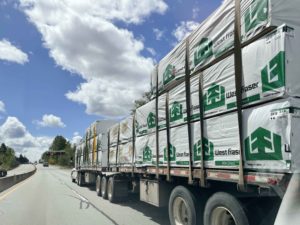 West Fraser-100 Mile Lumber employees like Kris Taylor are taking each day as it comes, following the announcement of the
West Fraser-100 Mile Lumber employees like Kris Taylor are taking each day as it comes, following the announcement of the 
 PRINCE ALBERT, Saskatchewan — The sale of a defunct Prince Albert pulp and paper mill from Domtar to the Ontario-based BMI Group has ended plans to re-open the mill and sparked a search for industrial business tenants for the site. “The site will never be a pulp mill again. That is for sure,” said Chris Rickett, BMI Group’s head of government and community relations. After eight months of negotiations, BMI purchased the former Weyerhaeuser Prince Albert pulp mill site and buildings from Domtar, Canada’s largest pulp and paper company. …The former Weyerhauser Prince Albert Pulp and Paper Mill ceased operations in 2006. Approximately 700 workers at the mill lost their jobs, with further indirect job losses in the forestry industry. A spokesperson for the One Sky Forest Products said it is gathering investors to build an oriented strand board (OSB) manufacturing plant on the former mill site.
PRINCE ALBERT, Saskatchewan — The sale of a defunct Prince Albert pulp and paper mill from Domtar to the Ontario-based BMI Group has ended plans to re-open the mill and sparked a search for industrial business tenants for the site. “The site will never be a pulp mill again. That is for sure,” said Chris Rickett, BMI Group’s head of government and community relations. After eight months of negotiations, BMI purchased the former Weyerhaeuser Prince Albert pulp mill site and buildings from Domtar, Canada’s largest pulp and paper company. …The former Weyerhauser Prince Albert Pulp and Paper Mill ceased operations in 2006. Approximately 700 workers at the mill lost their jobs, with further indirect job losses in the forestry industry. A spokesperson for the One Sky Forest Products said it is gathering investors to build an oriented strand board (OSB) manufacturing plant on the former mill site. 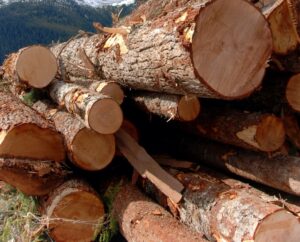 The Nova Scotia Forestry Innovation Transition Trust is investing $1.8 million to assist private landowners and forest contractors in finding new markets for underutilized wood fibre and to support sustainable forestry management. According to a
The Nova Scotia Forestry Innovation Transition Trust is investing $1.8 million to assist private landowners and forest contractors in finding new markets for underutilized wood fibre and to support sustainable forestry management. According to a 


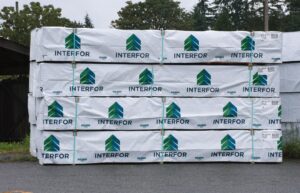 EAR FALLS, Ontario — Northerners know what it means to put in an honest day’s work. …But in Ear Falls, that northern way of life is under threat. In October, Interfor announced the indefinite closure of the Ear Falls sawmill. Over 160 jobs have vanished, and the community is left waiting—hoping that leaders in Ottawa and Toronto will step up, restore these jobs, and fight for the future of Ear Falls. But Ear Falls did not just stand by, they united. Workers, families, municipal leaders, Unifor, and MPP Sol Mamakwa stood shoulder to shoulder to demand action. …But the response from Premier Ford and Prime Minster Carney? Deafening silence. The indefinite closure of Ear Falls’ sawmill, and the silence from Conservative and Liberal governments lay bare the legacy of under-development, under-investment, and under-representation that holds Northerners back.
EAR FALLS, Ontario — Northerners know what it means to put in an honest day’s work. …But in Ear Falls, that northern way of life is under threat. In October, Interfor announced the indefinite closure of the Ear Falls sawmill. Over 160 jobs have vanished, and the community is left waiting—hoping that leaders in Ottawa and Toronto will step up, restore these jobs, and fight for the future of Ear Falls. But Ear Falls did not just stand by, they united. Workers, families, municipal leaders, Unifor, and MPP Sol Mamakwa stood shoulder to shoulder to demand action. …But the response from Premier Ford and Prime Minster Carney? Deafening silence. The indefinite closure of Ear Falls’ sawmill, and the silence from Conservative and Liberal governments lay bare the legacy of under-development, under-investment, and under-representation that holds Northerners back.
 KINGSPORT, Tennessee — About 300 gallons of waste leaked from Domtar’s mill site to Domtar Park, according to Tennessee Department of Environment and Conservation documents. Of the 300 gallons of waste, which included liquids and solids, about 150 gallons were recovered. The mill’s 25-acre lagoon was lowered four to six inches as a precautionary measure in response to the leak, Domtar told the Times News. In its letter to TDEC, Domtar said no detrimental effects were observed to the property or the environment due to the “organic nature” of the lagoon’s contents. Domtar also said it believed the waste found at Domtar Park was “partially” treated through its wastewater treatment process. “The leak did not reach waters of the state and Domtar representatives indicated mitigation was taking place. No further action was taken by the department,” said TDEC spokesperson Jennifer Donnals in a statement to Six Rivers Media.
KINGSPORT, Tennessee — About 300 gallons of waste leaked from Domtar’s mill site to Domtar Park, according to Tennessee Department of Environment and Conservation documents. Of the 300 gallons of waste, which included liquids and solids, about 150 gallons were recovered. The mill’s 25-acre lagoon was lowered four to six inches as a precautionary measure in response to the leak, Domtar told the Times News. In its letter to TDEC, Domtar said no detrimental effects were observed to the property or the environment due to the “organic nature” of the lagoon’s contents. Domtar also said it believed the waste found at Domtar Park was “partially” treated through its wastewater treatment process. “The leak did not reach waters of the state and Domtar representatives indicated mitigation was taking place. No further action was taken by the department,” said TDEC spokesperson Jennifer Donnals in a statement to Six Rivers Media.
 STEVENS POINT, Wisconsin – USDA Rural Development Wisconsin State Director Andrew Iverson announced the Timber Professionals Cooperative Enterprises (TPCE) will use a Rural Development loan of $800,000 to re-open and expand the former Hoffman Wood Fiber sawmill in Shawano County. This investment is through the Timber Production Expansion Guaranteed Loan Program (TPEP). TPCE will use guaranteed loan funds to purchase over 49 acres of real estate and equipment. The equipment will allow TCPE to improve the efficiency of manufacturing wood chips. The project also includes plans to expand capabilities of the site to manufacture new, higher-value products from the same raw materials. The project will create six jobs. …TPCE plans to implement a detailed process to improve productivity involving processes in the wood yard and chip mill. Installation of an automatic log feed deck will help increase production from 2,500 to 4,000 tons per month.
STEVENS POINT, Wisconsin – USDA Rural Development Wisconsin State Director Andrew Iverson announced the Timber Professionals Cooperative Enterprises (TPCE) will use a Rural Development loan of $800,000 to re-open and expand the former Hoffman Wood Fiber sawmill in Shawano County. This investment is through the Timber Production Expansion Guaranteed Loan Program (TPEP). TPCE will use guaranteed loan funds to purchase over 49 acres of real estate and equipment. The equipment will allow TCPE to improve the efficiency of manufacturing wood chips. The project also includes plans to expand capabilities of the site to manufacture new, higher-value products from the same raw materials. The project will create six jobs. …TPCE plans to implement a detailed process to improve productivity involving processes in the wood yard and chip mill. Installation of an automatic log feed deck will help increase production from 2,500 to 4,000 tons per month.
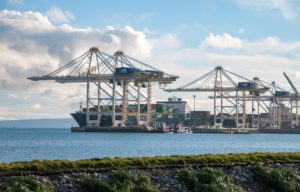 EU and UK timber industry organisations have declared their “unwavering commitment” against imports of Russian and Belarusian wood products. In an announcement published on the TDUK website, CEI-Bois (European Confederation of Woodworking Industries), ETTF (European Timber Trade Federation), EOS (European Organisation of the Sawmill Industry), and TDUK (Timber Development UK) – have signed the united statement reaffirming the EU and UK woodworking industry’s and wood traders’ strong and unwavering commitment to complying with applicable legislation governing the import of wood products from Russia or Belarus. …Sanctions on wood from Russia and Belarus were introduced years ago, yet residual quantities of prohibited wood regrettably remain in circulation in Europe. …“Our message is clear: the EU and UK wood industry value chain is united in its determination not to import Russian and Belarusian wood. Integrity is a core value of our industry, and we reject illegal and unethical practices by any company.”
EU and UK timber industry organisations have declared their “unwavering commitment” against imports of Russian and Belarusian wood products. In an announcement published on the TDUK website, CEI-Bois (European Confederation of Woodworking Industries), ETTF (European Timber Trade Federation), EOS (European Organisation of the Sawmill Industry), and TDUK (Timber Development UK) – have signed the united statement reaffirming the EU and UK woodworking industry’s and wood traders’ strong and unwavering commitment to complying with applicable legislation governing the import of wood products from Russia or Belarus. …Sanctions on wood from Russia and Belarus were introduced years ago, yet residual quantities of prohibited wood regrettably remain in circulation in Europe. …“Our message is clear: the EU and UK wood industry value chain is united in its determination not to import Russian and Belarusian wood. Integrity is a core value of our industry, and we reject illegal and unethical practices by any company.”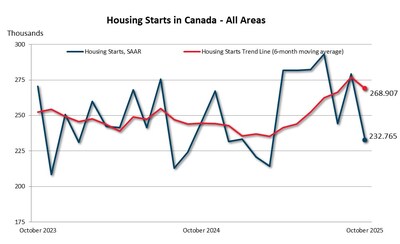

 The US Census Bureau announced the following value put in place construction statistics. …Construction spending during August 2025 was estimated at a seasonally adjusted annual rate of $2,169.5 billion, 0.2 percent (±0.7 percent) above the revised July estimate of $2,165.0 billion. The August figure is 1.6 percent (±1.5 percent) below the August 2024 estimate of $2,205.3 billion. During the first eight months of this year, construction spending amounted to $1,438.0 billion, 1.8 percent (±1.0 percent) below the $1,463.7 billion for the same period in 2024. …Spending on private construction was at a seasonally adjusted annual rate of $1,652.1 billion, 0.3 percent (±0.5 percent) above the revised July estimate of $1,647.5 billion. …In August, the estimated seasonally adjusted annual rate of public construction spending was $517.3 billion, virtually unchanged from (±1.2 percent) the revised July estimate of $517.5 billion.
The US Census Bureau announced the following value put in place construction statistics. …Construction spending during August 2025 was estimated at a seasonally adjusted annual rate of $2,169.5 billion, 0.2 percent (±0.7 percent) above the revised July estimate of $2,165.0 billion. The August figure is 1.6 percent (±1.5 percent) below the August 2024 estimate of $2,205.3 billion. During the first eight months of this year, construction spending amounted to $1,438.0 billion, 1.8 percent (±1.0 percent) below the $1,463.7 billion for the same period in 2024. …Spending on private construction was at a seasonally adjusted annual rate of $1,652.1 billion, 0.3 percent (±0.5 percent) above the revised July estimate of $1,647.5 billion. …In August, the estimated seasonally adjusted annual rate of public construction spending was $517.3 billion, virtually unchanged from (±1.2 percent) the revised July estimate of $517.5 billion. 


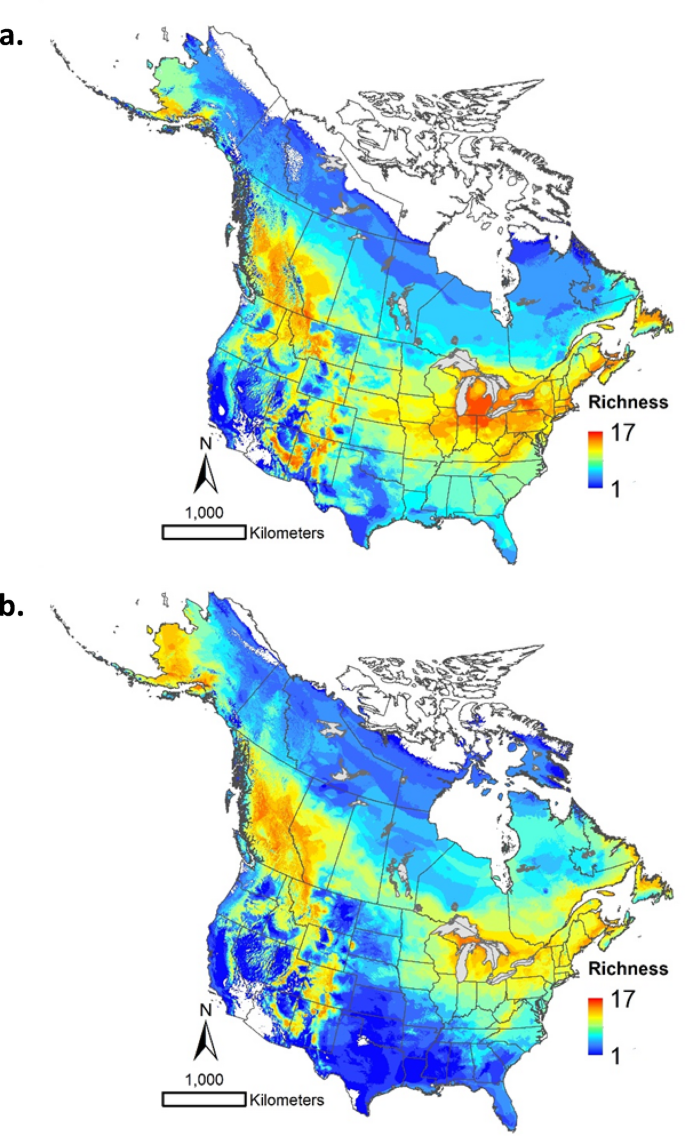




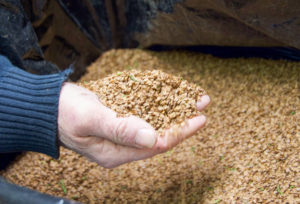 BANFF, Alberta – Because of this importance of whitebark pine, Parks Canada is working across the mountain national parks of Banff, Yoho, Kootenay, Jasper, Revelstoke-Glacier and Waterton Lakes to try to give endangered whitebark pine a fighting chance. The higher elevation trees, which can live to be 1,000 years old, are dying off at an alarming rate. Climate change, more than a century of wildfire suppression and mountain pine beetle are all playing a role, but the biggest threat comes from white pine blister rust. …One clear sign of infection is orange blisters on the bark. McLellan said less than one per cent of whitebark pine are naturally resistant to the rust. …Charlie McLellan said last summer about 6,500 rust-resistant saplings were planted in the Banff National Park field unit and in Kootenay National Park – made up of whitebark pine and limber pine, another species recommended to be listed as endangered.
BANFF, Alberta – Because of this importance of whitebark pine, Parks Canada is working across the mountain national parks of Banff, Yoho, Kootenay, Jasper, Revelstoke-Glacier and Waterton Lakes to try to give endangered whitebark pine a fighting chance. The higher elevation trees, which can live to be 1,000 years old, are dying off at an alarming rate. Climate change, more than a century of wildfire suppression and mountain pine beetle are all playing a role, but the biggest threat comes from white pine blister rust. …One clear sign of infection is orange blisters on the bark. McLellan said less than one per cent of whitebark pine are naturally resistant to the rust. …Charlie McLellan said last summer about 6,500 rust-resistant saplings were planted in the Banff National Park field unit and in Kootenay National Park – made up of whitebark pine and limber pine, another species recommended to be listed as endangered.

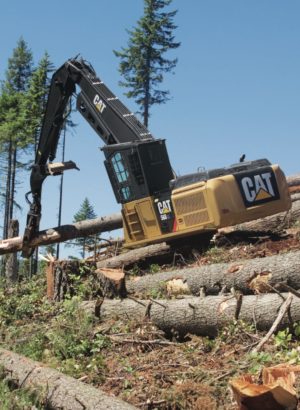 The timber industry built around the Tongass National Forest in Alaska got a boost from the Trump administration’s latest trade deal with China. In settling part of its trade battles, China agreed to accept imports of US sawlogs for the first time since banning them in March due to worries about insect pests. The resumption of exports — effective Nov. 12 — would help companies like Alcan Forest Products in Ketchikan, which for years has sold unprocessed logs to China. The latest agreement lasts one year, said Tessa Axelson, executive director of the Alaska Forest Association. A 10% tariff on products from both countries would still apply. …Southeast Alaska’s timber industry relies heavily on the nearly 17-million-acre Tongass, although most of the forest is off-limits to logging. Federal law allows the export of unprocessed logs, a practice long banned elsewhere to protect the domestic lumber processing industry. [to access the full story an E&ENews subscription is required]
The timber industry built around the Tongass National Forest in Alaska got a boost from the Trump administration’s latest trade deal with China. In settling part of its trade battles, China agreed to accept imports of US sawlogs for the first time since banning them in March due to worries about insect pests. The resumption of exports — effective Nov. 12 — would help companies like Alcan Forest Products in Ketchikan, which for years has sold unprocessed logs to China. The latest agreement lasts one year, said Tessa Axelson, executive director of the Alaska Forest Association. A 10% tariff on products from both countries would still apply. …Southeast Alaska’s timber industry relies heavily on the nearly 17-million-acre Tongass, although most of the forest is off-limits to logging. Federal law allows the export of unprocessed logs, a practice long banned elsewhere to protect the domestic lumber processing industry. [to access the full story an E&ENews subscription is required]

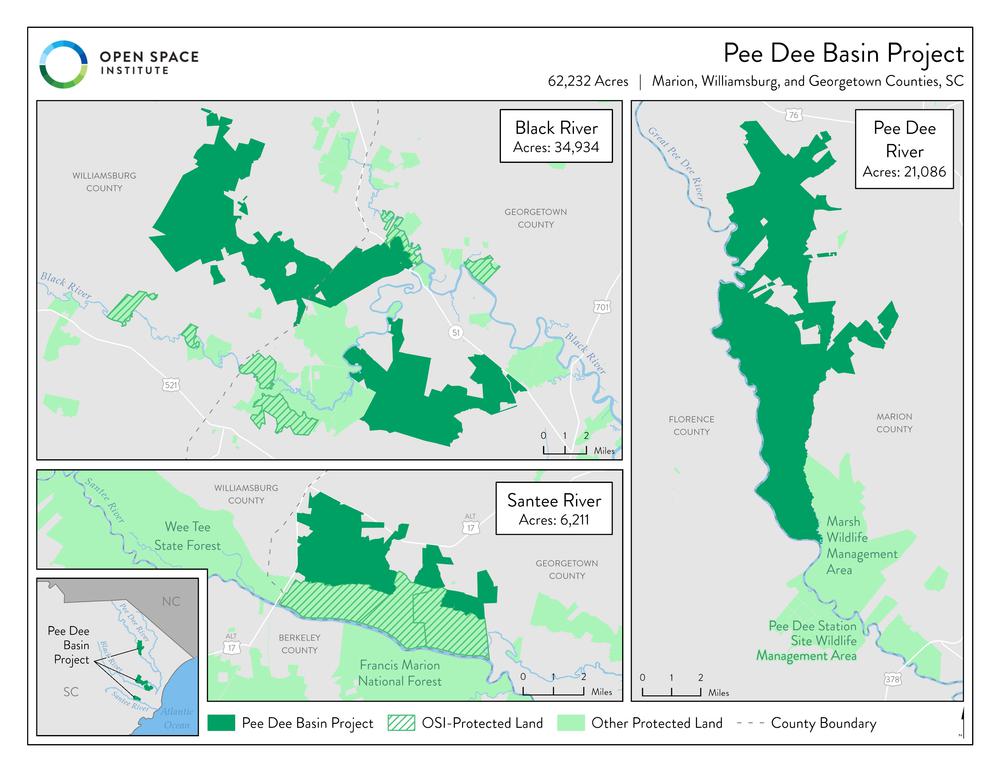
 A new law, Bill 27, could allow for large-scale geologic carbon storage to reduce the emissions from industrial processes like natural gas power generation, cement and steel-making, but critics say it’s not a silver bullet. …Ontario’s associate minister Sam Oosterhoff is impressed by Suncor Energy. The company… “cares deeply about reducing emissions.” And Oosterhoff believes they should do it through a process known as carbon capture and storage. That’s why Ontario should pass new legislation that would enable this process for high-emitting industries like cement and steel. …Bruce Hart, an adjunct professor in earth sciences at Western University, said he’s optimistic about Ontario’s carbon storage plans, given the types of rock available in the southwestern part of the province. …Aly Hyder Ali, at Environmental Defence, characterizes it as a tactic that allows emitters to expand fossil fuel production, not a meaningful solution to climate change.
A new law, Bill 27, could allow for large-scale geologic carbon storage to reduce the emissions from industrial processes like natural gas power generation, cement and steel-making, but critics say it’s not a silver bullet. …Ontario’s associate minister Sam Oosterhoff is impressed by Suncor Energy. The company… “cares deeply about reducing emissions.” And Oosterhoff believes they should do it through a process known as carbon capture and storage. That’s why Ontario should pass new legislation that would enable this process for high-emitting industries like cement and steel. …Bruce Hart, an adjunct professor in earth sciences at Western University, said he’s optimistic about Ontario’s carbon storage plans, given the types of rock available in the southwestern part of the province. …Aly Hyder Ali, at Environmental Defence, characterizes it as a tactic that allows emitters to expand fossil fuel production, not a meaningful solution to climate change.